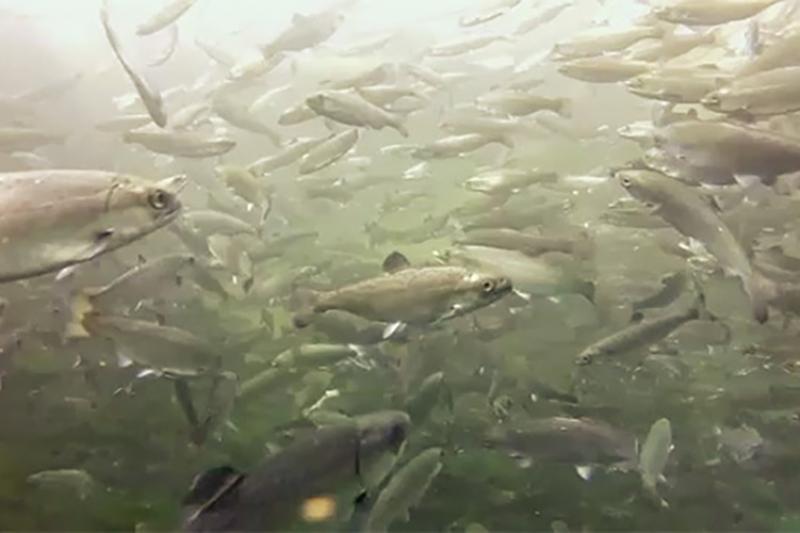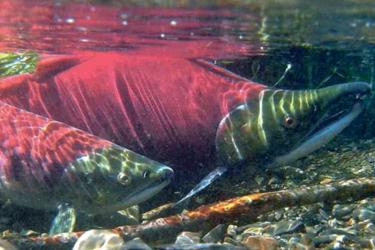NOAA Fisheries has denied a request for emergency action to eliminate Chinook salmon bycatch in the Bering Sea pollock fishery and implement a hard cap on chum salmon bycatch.
The request was submitted on December 21, 2021 by Kawerak, Inc., the Association of Village Council Presidents, the Kuskokwim River Inter-Tribal Fish Commission, the Yukon River Inter-Tribal Fish Commission, the Aleut Community of St. Paul Island, and the Bering Sea Elders Group. It effectively asked Secretary of Commerce Gina Raimondo to close the Bering Sea pollock fishery in 2022. The petitioners also asked for Tribal consultation with Western and Interior Alaska Tribes to develop long-term measures to reduce chum salmon bycatch, which NOAA Fisheries is currently undertaking.
The agency has determined that this request does not meet the three criteria necessary for NOAA Fisheries to implement an emergency rule. In particular, the petition does not contain information indicating that it meets all of the requirements of the Magnuson-Stevens Act. The petition does not contain any information indicating that the petitioned action is “practicable,” a statutory requirement, nor is the requested action likely to address the emergency from salmon run failures in Western Alaska.
The best available scientific information indicates that those failures have resulted from broad changes to the marine and freshwater environment. Chinook salmon bycatch in the Bering Sea pollock fishery comprises less than 3 percent and chum salmon bycatch comprises less than 1 percent of the returns to Western Alaska river systems (see note below). Closure of the pollock fishery in 2022 is unlikely to result in substantive increases to the subsistence and commercial harvests in 2022.
NOAA Fisheries understands the people in western Alaska have suffered significant cultural and economic losses resulting from low Chinook salmon runs since 2008, and most recently the Chinook and chum salmon failures in the Yukon River system in 2021. We will continue to consult with Western and Interior Alaska Tribes to develop long-term solutions towards minimizing salmon bycatch.
NOAA Fisheries is committed to working with the North Pacific Fishery Management Council, Tribes, and other stakeholders to examine our current salmon bycatch management measures and develop long-term management measures to further limit Chinook and chum salmon bycatch.
Note: The last official estimate was from over a decade ago and estimated that chum salmon bycatch made up less than 1% of the total annual runs to Western Alaska. Given recent poor returns, current estimates are believed to be higher but still in the single digits and possibly the low single digits. However, we do not yet have all the available data to update this estimate because we do not have inriver and spawning escapement estimates from State waters.

